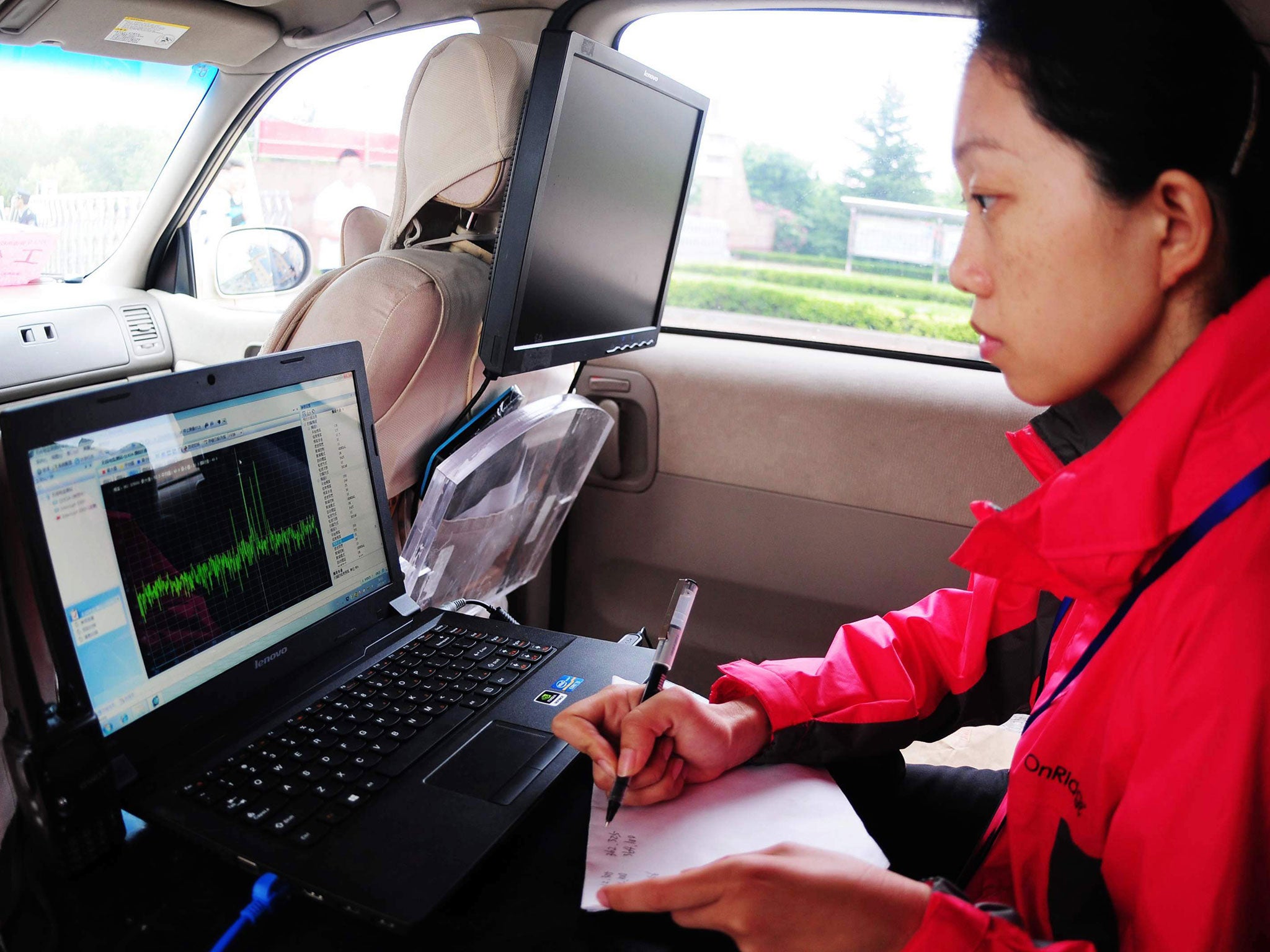2,440 Chinese students caught cheating in latest high-tech scam
Video: It's been called one of the "the worst scandals" of recent years

Your support helps us to tell the story
From reproductive rights to climate change to Big Tech, The Independent is on the ground when the story is developing. Whether it's investigating the financials of Elon Musk's pro-Trump PAC or producing our latest documentary, 'The A Word', which shines a light on the American women fighting for reproductive rights, we know how important it is to parse out the facts from the messaging.
At such a critical moment in US history, we need reporters on the ground. Your donation allows us to keep sending journalists to speak to both sides of the story.
The Independent is trusted by Americans across the entire political spectrum. And unlike many other quality news outlets, we choose not to lock Americans out of our reporting and analysis with paywalls. We believe quality journalism should be available to everyone, paid for by those who can afford it.
Your support makes all the difference.Over 2,000 Chinese students have been caught cheating during a national exam, using elaborate high-tech gear to do so.
Chinese state television reported on Sunday that invigilators detected abnormal radio signals from an illegal frequency during national licensing tests for pharmacists in Shaanxi province.
Candidates were caught with earpieces through which answers to the test questions were transmitted.
The organisers of the cheating scam sent fake candidates to take the test first and who then memorised the questions. They then broadcast the answers to candidates sitting the exam, who each paid $330.
"It is the worst scandal over the past few years," Du Fangshuai, the chief of Shaanxi testing authority, said. "We've caught 2,440 candidates in total at seven test centres. At one centre there were 700 candidates cheating at the test."
The South China Morning Post reported that the number caught cheating accounted for one in 10 of the 25,000 who sat the exam in Shaanxi.
The total number caught cheating accounted for almost one in 10 of the 25,000 candidates who sat the test in the province.
The South China Morning Post said that Shaanxi has a shortage of pharmacists currently and that the licensing test - seven separate 180-minute exams - was incredibly competitive. Hence, scams such as these often do occur.
China's "gaokao" exams - which students take to win a place at the country's universities - are infamously difficult and cheating has become widespread.
In June 2013 invigilators in Zhongxiang in Hubei province used metal detectors to take mobile phones and secret transmitters off students while others patrolled the perimeter of the exam area to stop anyone sending signals. This proved too much for the parents of those inside who trapped the invigilators inside the building and started a mini riot over their heavy-handed tactics.
Even the USA is aware of the Chinese cheating culture, with CNN reporting in July that US admission officers believe one in ten applications to U.S. colleges by Chinese students may contain faked documents.
Join our commenting forum
Join thought-provoking conversations, follow other Independent readers and see their replies
Comments